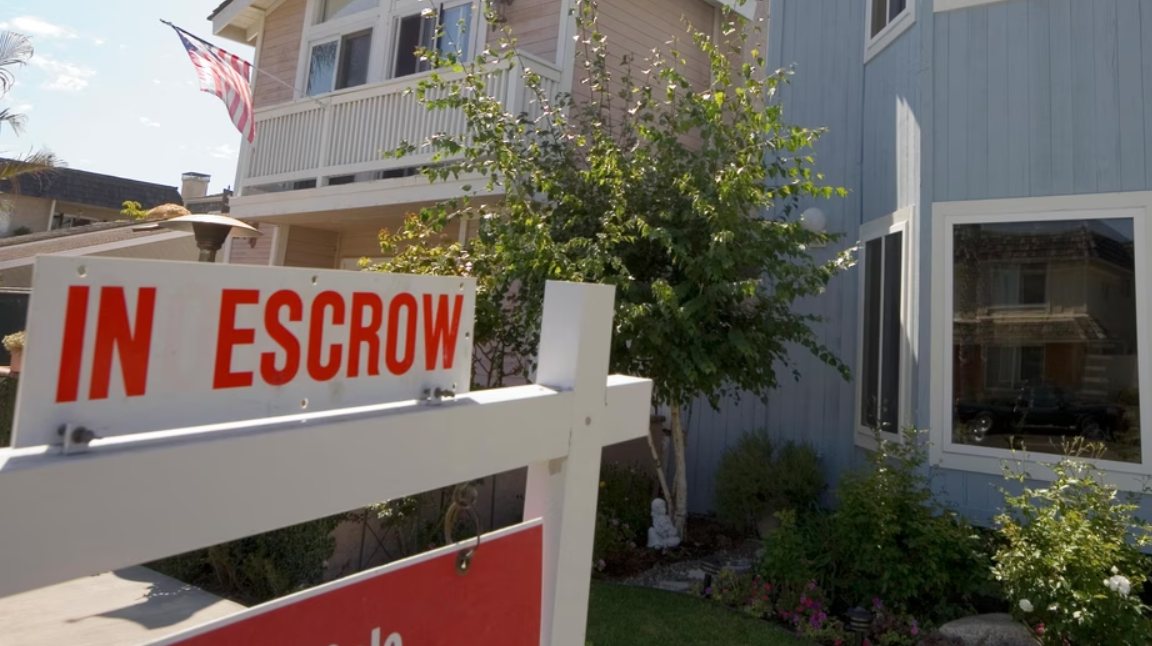An escrow account is a secure holding area for money and documents during a real estate transaction. It protects buyers, sellers, and lenders by ensuring no funds or titles change hands until all terms of the sale are met.
Escrow might sound complicated, but it’s one of the most important safeguards during the homebuying process.
Here’s a breakdown of how escrow works, who manages it, and how it protects both sides of the deal.
What is escrow in real estate?
In real estate, escrow is a legal arrangement where a neutral third party (usually an escrow officer or company) holds important items until the deal officially closes. These items can include the earnest money deposit, the signed purchase agreement, and other transaction documents.
The escrow process ensures that neither the buyer nor the seller is at risk of losing money or ownership if the other party doesn’t fulfill their part of the contract.
How escrow works during a home sale
The escrow agent is often someone from the real estate closing company, an attorney, or a title search company agent (customs vary by state), says Andy Prasky, a real estate professional with Re/Max Advantage Plus in Twin Cities.
Your agent will
-
Hold the buyer’s earnest money deposit in a secure escrow account
-
Collect documents from both parties, such as disclosures and inspection reports
-
Ensure all contract conditions are met (e.g., home inspection, loan approval)
-
Disburse funds and finalize the sale once all contingencies are cleared
Once all conditions are met and the transaction is finalized, the escrow officer will record the title transfer, release the funds to the seller, and the buyer will receive ownership of the home.
What does escrow cost?
Escrow fees typically range from 1% to 2% of the home’s purchase price, but the total cost can vary based on location and the complexity of the transaction.
Who pays the escrow fee—the buyer, the seller, or both—depends on your purchase agreement and local customs.
What is earnest money, and how is it used?
Earnest money—also known as an escrow deposit—is a dollar amount buyers put into an escrow account after a seller accepts their offer. The escrow company holds the money in an escrow account for the duration of the transaction.
Another way to think of it is as a “good-faith” deposit into an escrow account, which will compensate the seller if the buyer breaches the contract and fails to close.
Can you borrow earnest money from a lender?
Most homebuyers come up with cash for escrow and deposit it into the escrow account from their own funds. The payment amount is small compared with the cost of the home and the loan, and the homebuyers might not even have a mortgage lender yet when they make an offer on a home.
However, earnest money can be borrowed from your lender, but certain rules apply. First-time buyers are most likely to need to go to their mortgage lender to make this escrow account deposit. Your lender will ultimately count the deposit toward closing costs and the down payment on the house.
How escrow protects buyers and sellers
Escrow might seem like a pain, but here’s how it can work in your favor.
For homebuyers
Let’s say, for example, the buyer had a home inspection contingency and discovered that the roof needed repairs. The seller agrees to fix the roof. However, during the buyer’s final walk-through, she finds that the roof hasn’t been repaired as expected. In this case, the seller won’t see a dime of the buyer’s money until the roof is fixed. Talk about a nice safeguard!
For home sellers
Sellers benefit from escrow, too. Let’s say the buyers get cold feet at the last minute and bail on the transaction. This might be disappointing to the seller, but at the very least, buyers have typically ponied up a sizable chunk of change for their earnest money deposit. This money, often totaling 1% to 2% of the purchase price of a home, has been held in escrow. When buyers back out with no legitimate reason, they forfeit that money to the seller—a decent consolation for the sale’s failure and the expense of making mortgage payments and other expenses while the home was off the market.
What is an escrow account for a mortgage?
After you buy a home, your mortgage lender may set up an escrow account to pay future property-related expenses like the following:
-
Mortgage insurance (if required)
Each month, a portion of your mortgage payment is deposited into this escrow account. When tax or insurance bills come due, your lender pays them directly using funds from that account.
If you overpay into escrow, you may get a refund check and see a reduction in your monthly payment. If costs increase, your lender might raise your mortgage payments to cover the difference.
Why escrow matters
Escrow is a safety net in real estate. It ensures that everyone involved (buyer, seller, and lender) has their interests protected, and that money and ownership change hands only when everything is in order.
Whether you’re navigating earnest money, closing costs, or a mortgage escrow account, understanding how this process works can save you stress—and money—during one of the most important financial decisions of your life.
Source: realtor.com ~ By Cathie Ericson ~ Image: Dale Taylor/iStock


